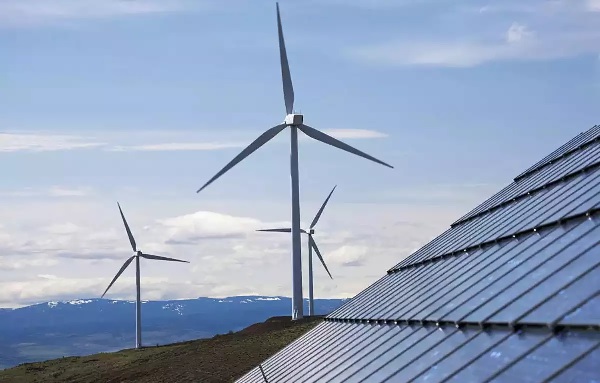
As China tightens grip, India and US sign agreement to strengthen supply chain for critical minerals – EQ
In Short : As China tightens its grip on critical minerals, India and the U.S. have signed an agreement to strengthen their supply chain for these essential resources. This partnership aims to enhance collaboration in sourcing and processing critical minerals, ensuring a stable supply for industries. The agreement reflects a strategic move to reduce reliance on China and bolster economic security for both nations.
In Detail : Amid rising concern over China’s control of critical minerals, which allows it to dominate the clean tech supply chain, particularly in solar equipment and electric vehicle manufacturing, India and the US signed an agreement to strengthen the critical mineral supply chain.
This follows a series of unexpected curbs imposed by China, including restrictions on exports of gallium and germanium—products widely used in the semiconductor industry—and a ban on exporting technology for manufacturing rare earth magnets, as well as technology to extract and separate critical materials.
India’s Minister of Commerce and Industry, Piyush Goyal, and US Secretary of Commerce, Gina Raimondo, signed a new memorandum of understanding (MoU) Thursday to expand and diversify critical mineral supply chains. The aim is to leverage the two countries’ complementary strengths to enhance resilience in the critical minerals sector, according to an official statement.
“Priority areas of focus include identifying equipment, services, policies, and best practices to facilitate the mutually beneficial commercial development of US and Indian critical minerals, including exploration, extraction, processing and refining, recycling, and recovery,” a statement from the US Department of Commerce said.
Speaking about the MoU at the Center for Strategic and International Studies in Washington, Commerce Minister Goyal described the partnership as multi-dimensional, encompassing open supply chains for materials, technology development, and investment flows to promote green energy.
Goyal further emphasised the need for India and the US to include other nations in the partnership, especially mineral-rich countries in Africa and South America.
“We will continue to expand cooperation in new areas and strengthen existing ones by capitalising on the immense opportunities for India-US trade and commercial partnership,” the minister said in a social media post.
The agreement follows a recommendation from the US last month that India should “expand and protect” its clean energy manufacturing. India’s Production Linked Incentive (PLI) schemes have invested over $4.5 billion to catalyse nascent clean energy manufacturing; however, “additional policies are essential” to safeguard these investments against “global market dynamics” and “thin profit margins,” according to a joint India-US statement.
The Economic Survey 2023-24 also noted that China’s manufacturing trade surplus has been expanding since 2019 due to weak domestic demand and increasing industrial capacity. The mismatch between domestic supply and demand in China has widened in recent years, prompting Chinese companies to seek additional markets overseas.
Citing coercive actions taken by China to restrict India’s access to solar equipment, the survey stated: “…in response to India’s anti-dumping probe against Chinese entities, China has been quietly blocking India’s access to solar equipment.”
To protect domestic solar photovoltaic (PV) module manufacturing, including projects under the PLI scheme, the Ministry of New and Renewable Energy (MNRE) reinstated the Approved List of Models and Manufacturers (ALMM) order on April 1.
This order prevents domestic solar projects from using imported modules, primarily from China, which are sold at significantly lower prices. In June 2024, imported modules were priced at an average of 9.1 cents per watt (CIF basis), while domestic modules averaged 18 cents per watt, according to CRISIL.
Earlier last month, the ministry announced plans to extend the ALMM order to solar cells from April 2026. The PLI scheme for high-efficiency PV modules, with a total budgetary outlay of Rs 24,000 crore across two tranches, also incentivises solar cell production.












